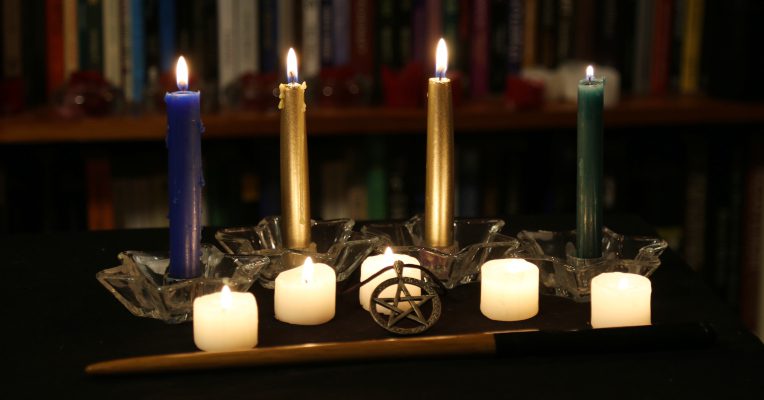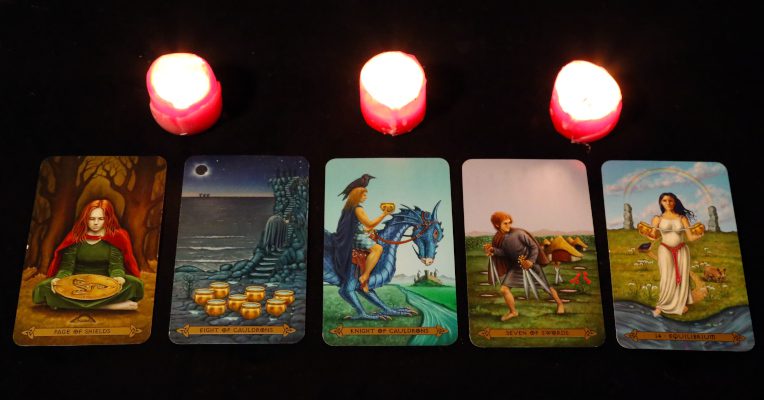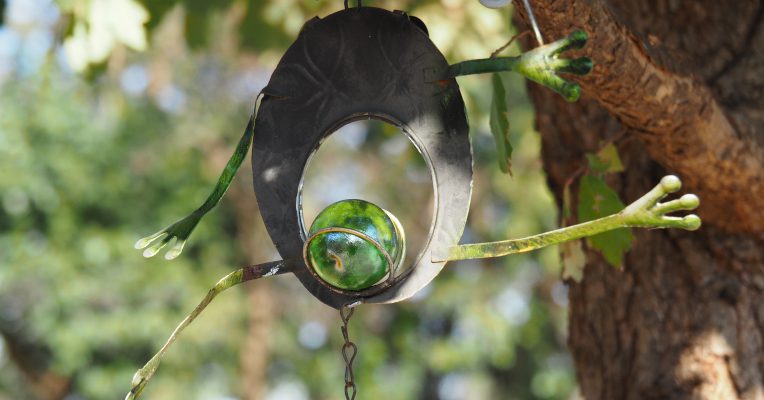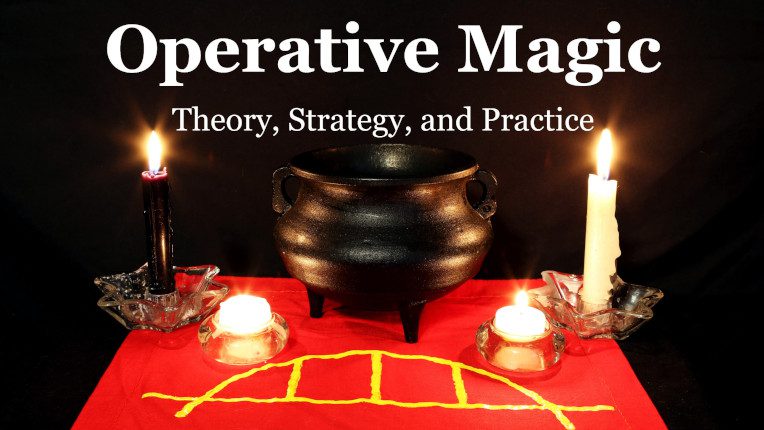I’m a serious writer who writes about serious matters. I encourage people to take their religion and spirituality seriously, and to work on it diligently. There’s not a single whimsical bone in my body – my mother still tells people I was “born 35.”
But even I know there’s a need for fun in our lives.
I send out a private newsletter1 on Fridays. Earlier this month I pointed out that the full moon was coming up, and I said:
As always, I encourage you to work some magic of some description at every full moon. It keeps your skills sharp, and besides, magic is fun! Yes, it’s serious business, but serious stuff can be fun too.
Serious stuff can be fun, especially when it produces good results. But while it sounds odd coming from someone as serious as me, magic is fun in and of itself. It’s serious and powerful and it can be dangerous, but it’s also fun.
A very brief primer on magic
For those of you who may not be regular readers here, let me explain very briefly what I mean by magic.
Magic is, in the famous words of Aleister Crowley, “the science and art of creating change in conformity with will.”
That’s what magic is, but how does magic work? Very early in my explorations, I came up with a three-fold understanding of how magic works. Almost 30 years later, I still don’t have a better one.
Magic works by the intercession of Gods and spirits. We pray and they respond – or not, as they see fit. Magic works by the manipulation of unseen energy. Perhaps “energy” isn’t the best word for what is manipulated, but even if we’re speaking metaphorically and not literally, it’s a useful term. And magic works by psychological programming. Nothing Otherworldly about it – just the deep but ordinary workings of the human brain.
In practice, a magical working may involve one, two, or all three of these methods. My most effective workings have used all three.
And with that out of the way, let’s look at all the ways magic is fun.
Finding the truth behind the fiction is fun
I remember the first time I really saw witchcraft on TV. I had seen witches in movies and TV shows and read about them in books, but at some point around age 5 or 6 or 7 I saw a portrayal of witchcraft and magic and I immediately knew two things. 1) What I was seeing on the screen was fiction. And 2) there was a reality behind the fiction.
It would take many years before I started seriously looking for that reality. And once I did, I confirmed that I can’t do the kinds of things fictional witches can do. But I can work magic, and discovering that reality has been fun.
Creating change is fun – and scary, but also fun
Magic is the science and art of creating change. Don’t like the way things are? Change them. You can use mundane effort, and you should. But you can also use magic to do what ordinary effort can’t. What’s most effective is use magic to enhance the odds that your long-shot mundane efforts will actually work.
Change can be scary. It’s different from what we’re used to. It might make things worse. But if you’re not happy where you are, then take a chance and see what happens. It will require work – it will require adjustment. But it can make things better.
And making things better is fun.
Living in a magical world is fun
In his book The Myth of Disenchantment: Magic, Modernity and the Birth of the Human Sciences, Jason Josephson-Storm shows how each generation claims to live in a disenchanted world. They tell stories of how their grandparents believed in magic and saw the Fair Folk, but their own lives are mundane and bland.
Except that they have magical experiences that future generations will use to talk about how the world used to be enchanted. He concludes:
Disenchantment is a myth. The majority of people in the heartland of disenchantment believe in magic or spirits today, and it appears that they did so at the high point of modernity. Education does not directly result in disenchantment.
So rather than rationalizing our experiences away, let’s accept them for what they are and realize we live in a world filled with Gods, spirits, and magic.
It’s much more fun that way.
Looking into the future is fun
I enjoy reading Tarot. Who wouldn’t enjoy looking at beautiful, mystical artwork and trying to figure out what it means?
We do not live in a deterministic world, despite what some insist (and it’s not just atheists – Calvinists, I’m looking at you too). The future is not fixed, and so we can’t see the future with certainty.
But we can see where a course of action will take us. If we like it, we can keep doing what we’ve been doing. If we don’t like it, we can take action to change course.
Looking into the future is fun, but building a better future because we have better information is even more fun.
Big successes are fun
Magic works best when it’s small, clearly defined, and narrowly focused. But sometimes your need is great. Sometimes you can break a big need up into smaller steps. And sometimes, a spell is the equivalent of a winning PowerBall ticket – the odds are long but it hits anyway.
In 2020 I wrote about my greatest magical successes, including manifesting an academic scholarship so I could go away to college, finding an ideal job under desperate circumstances, and breaking a self-inflicted curse.
Need some help in working magic for big successes? Read Weaving Fate by Aidan Wachter. The hypersigil technique he teaches works – I’ve used it on several occasions. I’ve got two I’m working on now… and this is a reminder that I need to adjust one of them.
Big magical successes take big time and big effort, but they pay off with big results. And that’s big fun.
Failures aren’t fun, but we can learn from them, and learning is fun
Magic doesn’t make things happen – it increases the odds that they will happen. If you do a spell and it moves your odds from 20% to 80% that’s a huge improvement. But 80% isn’t 100% – sometimes you’re going to fail anyway.
Failure is never fun. It’s disappointing. It may carry serious consequences and send us scrambling for alternatives. But failure is also a chance to learn.
What went wrong? Did you choose a vague target and get vague results? Try to move the odds too far (i.e. – why lottery spells are a waste of time)? Or maybe you just did the spell wrong. Do a proper post mortem – figure out what went wrong and how you can do better next time.
Avoid the feel-good clichés like “it wasn’t your karma to have that” or “that just means something better is coming down the road.” Accept your failure, and then learn from it.
That improves your odds of succeeding next time. And besides, learning is fun.
Want to take a class in magic?
Want to take your magic to the next level? Want to learn some magical history and theory? Want to learn the hardest thing of all: what to work magic for? I’ve got a class for that.
Operative Magic – Theory, Strategy, and Practice is an on-demand video class through my teaching website, undertheancientoaks.com. You can start it at any time. I’m no longer reviewing homework, but I’m always available to answer class-related questions. Module 0 is free to all – it’s the “syllabus module” that talks about what the class covers in detail.
Is the class fun? I certainly enjoyed teaching it. And of the people who responded to the post-class survey, 73% said they loved it and another 25% said it was good. If 98% were happy with it, there must be some fun in there somewhere.
1 Newsletter
Want to get my personal weekly newsletter? It’s free and I’ll never sell your e-mail address or otherwise misuse it.
The newsletter covers things that don’t fit into the blog format, mostly in my usual range: Paganism, polytheism, and magic. Current events and politics. What I’m working on that you’ll see in the near to medium future – be the first to find out about new classes, appearances, and such.
The newsletter goes out early morning my time most Fridays.
To sign up, visit my teaching site, enter your e-mail in the big green block, and do the not-a-robot thing. You’ll get a confirmation e-mail – respond to it and you’re set. You have to respond to the confirmation e-mail – my mailing service wants to make sure you really want the newsletters and someone isn’t signing you up for something you don’t want.





















